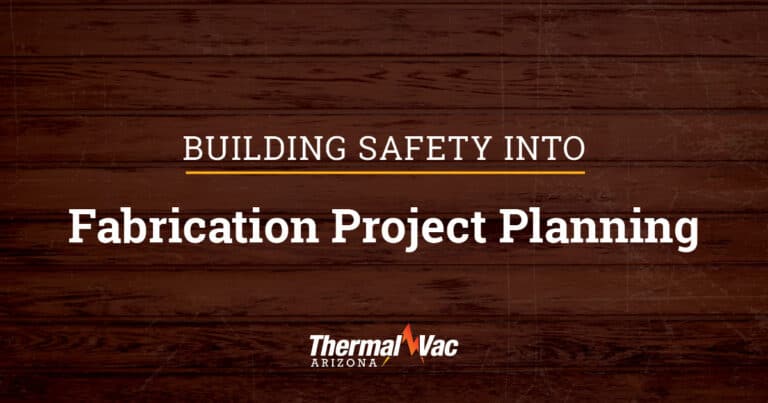Full fabrication process management is all about controlling risks. The distributed manufacturing model strings together specialized suppliers across hundreds or even thousands of miles. A lot can go wrong along the way, which is why vendor selection and oversight are so important.
Safety is a bedrock issue for risk management. Everyone understands the importance of safety within their own facilities. Keeping employees and visitors healthy isn’t only a legal and financial obligation, it’s also an ethical and moral one.
With components passing from one vendor to the next over the course of the fabrication process, the safety standards of each vendor become just as important as the practices at the home office.
Vendor safety can have a significant impact on a project’s risk profile. One bad apple can spoil the barrel. On the other hand, a start-to-finish chain of companies with robust safety cultures will have fewer incidents, a happier and healthier workforce, and more reliable output.
Mitigating risk from vendor safety practices requires a multipronged approach:
- Onboarding: The vendor should be qualified for safety compliance before being brought into the project.
- Contracting: Safety should be a component of the vendor’s contract, transferring safety risk to where it belongs.
- Monitoring: No vendor should be allowed to rest on its laurels. A strong safety culture can erode if it isn’t constantly renewed. That’s doubly true if a business experiences disruptions from new management or a wave of new employees. Regular safety audits keep vendors accountable.
- Enforcement: If a vendor fails to meet its safety obligations, the process manager needs to act quickly. If the vendor can’t swiftly correct the problem, it’s time to find a replacement.
A flawless safety record should be the goal for every industrial facility. An impeccable safety provides a comfortable working environment for employees and on-site contractors, strengthens the company’s reputation, and lowers costs.
In industrial fabrication supply chains, processes need to be tailored to fit each project. A one-size-fits-all solution doesn’t exist in any phase, whether it’s machining, brazing, plating, finishing, or shipping. Teams must tune their approach to safety for each customized process.
At times, safety considerations can have a significant impact on how a process is completed. A safe approach to a task may mean losing efficiency, especially speed. The right mindset is to view the safest approach as the fastest—speed at the expense of safety is ultimately not faster or cheaper.
Keeping strict documentation of all site activity is imperative. In the event of an incident, documentation becomes important for understanding what happened and how to improve operations so a similar incident is less likely in the future.
In the end, maximum and effective safety measures will bring a sense of ease and comfort to your customers and workers. Robust safety measures can be expensive, in terms of both equipment and time invested in training and cultural adjustments. In our view, no price point exists that justifies placing someone in danger.
For more information on the safety precautions Thermal-Vac Arizona can provide for you, please contact us today.
